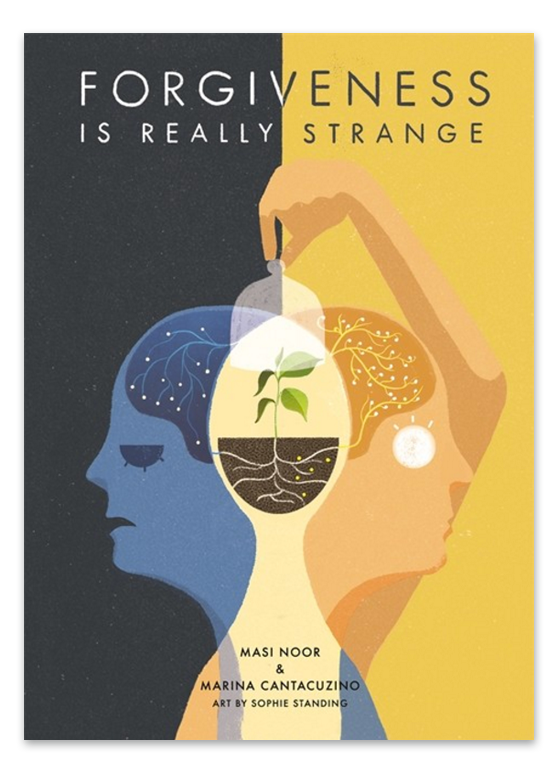Must Suffering Beget Suffering?
Must suffering beget suffering?
Masi Noor
Liverpool John Moores University
Social psychology’s short answer is: No! Human behaviour is driven by goals. Our goals reflect our desires. As such, they represent our social and moral character to the outside world. Conflicts arise when our goals clash against someone else’s goals. The massacres in Beirut and Paris were interpreted as representing the barbaric essence of ISIS. They could also be understood as the tragic traps set by ISIS to prove its image of the West and to assert its narrative of the conflict as an intergroup conflict between Muslims and the West.
How is one to respond to being wronged without proving the enemy’s image of oneself right?
Psychological research has established that a basic psychological need of victim groups is to restore their autonomy and sense of control (Nadler & Shnabel, 2008). This is reflected in our impulse to desire revenge following exposure to victimisation. But these impulses may be managed and even suppressed when questioning the goals and unintended consequences of such vengefulness. Bombing Syria will be received as an act of revenge for the Paris attack, even though Western governments may not have intended it as such. Its goal to prevent Western citizens from future similar attacks is doubtful. In fact, the bombing may reveal the West’s moral inconsistencies (e.g., business relationships are maintained with countries such Saudi Arabia and China which have a high record of beheadings and other human rights violations) and its ethnocentric biases toward valuing ingroup versus outgroup lives differentially (e.g., bombing Northern Ireland was – thankfully – never considered as a strategy to eliminate the terror threats posed by the Irish Republican Army; see also Pratto & Glasford, 2008). And staying closer to psychology, would we have had this special feature in the Psychologist had ISIS not attacked Paris?
All of the above does mostly one thing, namely, to feed into the ISIS’ narrative of victimhood. Recent social psychological insights have uncovered that victimhood is best considered as a psychological resource over which conflicting groups may compete (Noor, Shnabel, Halabi, & Nadler, 2012). It is referred to as competitive victimhood and has catastrophic consequences for conflict resolution. That is, due to mutual victimisation, each of the adversary groups develops a profound sense of being the ‘real’ victim. Consequently, competitive victimhood motivates groups to draw attention to their own suffering while failing to acknowledge the suffering they inflict on each other. Importantly the more groups operate out of a competitive victimhood mindset the less likely they are to consider resolution of their violent conflict (Shnabel, Halabi, & Noor, 2013).
Is there an alternative strategy powerful enough to disrupt the ISIS’s narratives without generating further suffering?
Given its etymological roots, forgiveness as a strategy usually prompts sentiments ranging from naivety and unrealistic pacifism to misplaced religious and spiritual moralisation. Yet, analysis of real-life stories of victims and academic research conducted in post- and ongoing-conflict settings challenge such sentiments as well as our common association between weakness and forgiveness (Noor , Brown, Gonzalez, Manzi, & Lewis, 2008; www.theforgivenesstoolbox.com). A key goal of forgiveness is to break the cycle of revenge and to protect the victims from becoming victimsers. It is a desire to go beyond one’s impulse for personal revenge. As such, victims place their personal tragedies into the public domain and invite society into a bigger search for seeking answers to the big why-questions to prevent future tragedies. It also forms the discipline not to give in to the entices of dehumanising an entire community which may share some basic memberships with the actual perpetrators. To forgive is to surprise your enemy. At least, it will confuse them. It certainly can undermine ISIS’ narrative of framing the conflict as Muslims fighting against the evil West.
We cannot expect the pursuit of such alternative strategies from our governments, before giving them our permission and reassurances to do so. Simultaneously, we need to demand from our governments to give us adequate time to mourn the dead. This is even more important in today’s world with many people having many bloods and belongings to different places and nations across the world. Following the Twin Tower and the Paris attacks, Western citizens were deprived of going through the process of mourning and introspection and non-Western citizens from maintaining their sympathy and condolences for the West, due to Western governments declaring wars on entire regions overnight. Consequently, we all have accepted and acted out of the then Al-Qaida and now ISIS’ narratives.
Naturally, given the way we currently define strength and weakness, or leadership, allows limited mental space to consider these alternative strategies to revenge seriously. However, a useful mantra to use against cynicism and alleged realism is the vision that there are infinite solutions to resolve conflict once adversary groups have meaningfully acknowledged their mutual grievances.
First published in the Psychologist Magazine, February issues, 2016. https://thepsychologist.bps.
References
Nadler, A., & Shnabel, N. (2008). Instrumental and socio-emotional inter-group reconciliation: The Needs Based Model of reconciliation. In A. Nadler, T. Maloy, & J. D. Fisher (Eds.), Social psychology of inter-group reconciliation. (pp. 37-56). New York, NY: Oxford University Press.
Noor, M., Shnabel, N., Halabi, S., & Nadler, A. (2012). When suffering begets suffering the psychology of competitive victimhood between adversarial groups in violent conflicts. Personality and Social Psychology Review, 16, 351-374.
Noor, M., Brown, R., Gonzalez, R., Manzi, J., & Lewis, C. A. (2008). On positive psychological outcomes: What helps groups with a history of conflict to forgive and reconcile with each other? Personality and Social Psychology Bulletin.34, 819-832.
Shnabel, N., Halabi, S., & Noor, M. (2013). Overcoming competitive victimhood and facilitating forgiveness through re-categorization into a common victim or perpetrator identity. Journal of Experimental Social Psychology, 49, 867-877.
Pratto, F., & Glasford, D. E. (2008). Ethnocentrism and the value of a human life. Journal of Personality and Social Psychology, 95, 1411-1428.


